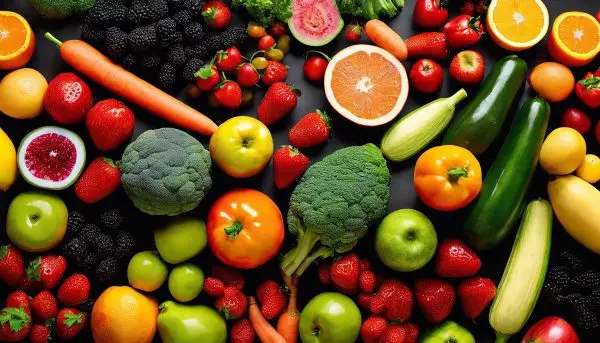Navigating life amidst the constant pressure and pace of today’s world can be nerve-wracking for both kids and adults. At times, the surge of obligations, expectations, and stressors leave us strained, agitated, and excessively worried – signs of a common but often neglected issue: anxiety. The impacts of anxiety are far-reaching, affecting not only our mental state but also our physical health and overall quality of life.
While we cannot completely rid ourselves or our children of anxiety, understanding it better and discovering how certain nutrients can help manage its symptoms can supply us with powerful tools for mental wellness. This guide aims to offer a practical approach to anxiety reduction that involves optimizing your diet with specific vitamins and minerals, supported by scientific findings and research.
Understanding Anxiety in Kids and Adults
Unraveling Anxiety: Recognizing Its Impact on Our Health and Daily Lives
Hello dear readers! If you’ve been following along, you know that our health and our children’s well-being are our top priorities. Today, we’re diving deep into the topic of anxiety — how to recognize it and understand its impact on our overall health.
Anxiety is more than just feeling worried or stressed. It’s a mental health issue that can affect anyone, from adults to children, persisting beyond typical day-to-day concerns. Recognizing anxiety in children and adults means having the ability to spot the often subtle, physical, emotional, and behavioral symptoms.
In children, anxiety may manifest differently than it does in adults. Restlessness, trouble focusing, irritability, and changes in eating or sleeping habits could be telltale signs your child might be struggling with anxiety. Also, they may have trouble sleeping or commonly experience nightmares. Excessive worrying about school activities or social interactions might indicate anxiety in children.
In adults, anxiety often presents more clearly. Aside from excessive worrying, other signs include restlessness, fatigue, concentration issues, and irritability. Adults experiencing anxiety might also have sleep problems and muscle tension. It’s important to watch out for these signs because prolonged stress and anxiety can lead to a variety of health problems such as cardiovascular issues, gastrointestinal conditions, or lowered immune function.
Indeed, the link between anxiety and overall health is undeniable. Chronic anxiety can lead to physical pains, and frequent sickness due to a weakened immune system, and if left unchecked, can contribute to high blood pressure, heart disease, obesity, and possibly diabetes. Anxiety also affects mental health, potentially leading to depression or other mental illnesses.
But here’s the silver lining – anxiety is treatable. With proper care, professional help, and a positive support system, one can manage anxiety and lead a happy, healthy life. Reach out to trusted advisors, and make lifestyle adjustments like including regular exercise, good nutrition, and maintaining a restful sleep routine. Most importantly, remember that seeking help is never a sign of weakness.
So dear readers, let’s keep our eyes open for these signs of anxiety in ourselves and our loved ones. Early recognition is crucial and can greatly affect the road to recovery. Always keep communication lines open and should you, or a family member, show signs of anxiety, remember to extend kindness, offer support, and seek professional help when needed.
In our journey of parenthood and life, bumps are bound to occur. Recognizing and dealing with anxiety is one of the steps we can take to ensure our family’s well-being. Let’s use this knowledge to build stronger, healthier families and communities!
Until our next chat, take care and keep sharing the love.
Role of Vitamins and Minerals in Mental Health
Vitamin Power: Boosting Mental Health to Curb Anxiety Issues
Imagine this: you prepare a nutrient-rich meal for your family, ensuring every plate is packed with an assortment of colors. Each bite is not only delicious but also delivers a powerful punch of vitamins and minerals. But what if these same meals also held the potential to contribute significantly to the mental health of your family? This often-overlooked aspect of nutrition plays a crucial role in alleviating anxiety – a mental health issue affecting millions of individuals globally.
Let’s peel back the layers on the fascinating connection between vitamins, minerals, and mental health, specifically how they can help reduce anxiety.
First off, our body isn’t just a machine that needs fuel to function physically. Just as it thrives on vitamins and minerals for physical health, our minds crave these nutrients too. These essential elements not only affect our mental wellness but can also influence how successfully we manage stress, including anxiety.
Vitamin B, for example, known as the ‘anti-stress vitamin’, is paramount in the regulation of our neurological systems and overall brain health. Found in wholesome foods like avocados, legumes, and leafy greens, a diet rich in Vitamin B can work wonders for allaying anxiety symptoms in both children and adults.
Vitamin D, often referred to as the ‘sunshine vitamin’, has a direct influence on our mood. A gap in this essential vitamin can often result in a higher likelihood of developing mood disorders, including anxiety. Encourage good habits such as spending a bit of time basking in the early morning sunlight and including fish, eggs, and fortified dairy in your meals to provide the necessary Vitamin D boost.
Don’t forget about those minerals either! Magnesium and zinc, for instance, are more than just components of a science class. They are pivotal elements that our brains utilize to help us stay calm and focused. A little sprinkle of pumpkin seeds on your salad or a snack of almonds can provide a healthy dosage of these much-needed minerals.
Incorporating these vitamins and minerals within our family’s daily diet can be an effective way to fortify not just our physical, but also mental health, and in turn, help alleviate anxiety symptoms.
Remember, it’s not about a radical shift in diet, but subtly integrating these nutrient powerhouses into meals. Little adjustments can create a significant impact, turning your kitchen into a haven of natural anxiety-reducing remedies.
So, the next time you’re planning your family meal, remember the power plate you hold in your hands. These vibrant, vitamin and mineral-filled meals aren’t just delicious and nutritious. They’re a stepping stone to good mental health, a vital line of defense in the battle against anxiety. Cook with care, serve with love, and enjoy the peace of mind that comes with knowing you’re nourishing your loved ones, body, and mind.
As we journey towards a mentally healthier family and community, embedding a balanced, nutrient-rich diet is an essential step. Spread the word, share your recipes and tips, and let’s grow together towards an anxiety-free future – plate by plate. After all, what’s more vital than the health and happiness of our families?
Essential Vitamins and Minerals for Anxiety
“Taking Anxiety to Task with Vitamins and Minerals”
Anyone who has nurtured a family knows the deep love we harbor for our brood and the elation we feel when they are well and happy. But there are days when wellness eludes us when the monster of anxiety throws shadows onto our family life. Today we delve into the powerful role of vitamins and minerals to alleviate anxiety and promote mental health.
When meals are fortified with anxiety-fighting vitamins and minerals, they act as a protective blanket for your family against anxiety’s chilly grasp. You may have heard of Vitamin B – the cheerleader of the vitamin family. It has an array of foot soldiers – B1, B3, B5, B6, B9, and B12 to name a few, which are excellent for fighting stress and maintaining a healthy nervous system.
Consider this – the sun is not just about frolicking at the beach. It gifts us with Vitamin D, which in turn gifts us with happiness. This wonder vitamin has been linked to mood regulation and reducing feelings of anxiety. A bout of sunshine or foods rich in Vitamin D such as fatty fish and fortified dairy products can work wonders.
Now, shifting gears to minerals, let’s discuss magnesium – the ‘relaxation mineral.’ Most of us, unbeknownst to us, are deficient in this necessary mineral. Adding magnesium-rich foods like almonds, spinach, and yogurt to our family meals, can help to combat anxiety.
Another important but often overlooked mineral is zinc. It is known to have a calming effect on the brain and can aid in reducing anxiety. Foods like beef, cashews, and egg yolks are chock-full of this anxiety-busting powerhouse.
The great news is that these vitamins and minerals aren’t elusive. They’re readily available and can be easily tweaked into our daily meals. Imagine serving up a steamy spinach lasagna or a platter of salmon patties, oozing with vitamins and minerals to help boot anxiety off its perch. Serving these meals does the double duty of nourishing our family and simultaneously enhancing their mental health.
We’re not just serving food – we’re serving wellness, one dish at a time.
In the broader picture, we are laying the groundwork for a mentally healthier future, not just within our own homes, but also within our wider community. As we share our knowledge, tips, and even recipes, we contribute to creating an environment that is attuned to mental well-being, winded firmly around wholesome nutrition.
Let’s open that conversation and share our wisdom. After all, we’re not just parents, spouses, or friends. We are stewards of our family’s well-being, crafting a legacy of health, understanding, and compassion.
So let’s break bread (whole grain, of course!) together and toast – to a world less anxious, more nourished, and brimming with health.
Incorporating These Nutrients into Your Family’s Diet
Kickstarting a journey towards less anxiety-laden days starts with the simple act of dining together as a family. Meals not only bring loved ones together but also are gateways to incorporating essential anxiety-reducing vitamins and minerals into everyone’s diet. But it may not always be clear how to easily incorporate these nutrients into your family meals. Here are some practical tips that can help make this process a breeze!
When it comes to the benefits of Vitamin B in stress management, there are multiple types to consider. Vitamin B6, for instance, encourages the production of neurotransmitters like serotonin that regulate stress. Foods like turkey, chickpeas, and bananas are excellent sources. Another crucial component is Vitamin B12, found in high volumes in seafood, poultry, and dairy products. Regular consumption of these can help generate a solidified defense against rising anxiety levels.
Moreover, Vitamin D is often dubbed as the ‘sunshine vitamin’ for the key role sunlight has in its synthesis in our bodies. But what’s less known is its role in mood stability. Foods like salmon, fortified dairy, and egg yolks are rich in Vitamin D. So, consider adding a bit of sunlight to your cooking regime with these foods to keep those anxiety clouds at bay.
Minerals have an equally important role. Magnesium, known as nature’s relaxant, can be found in ample amounts in spinach, pumpkin seeds, and yogurt. This mighty mineral can help ease restlessness and improve sleep, giving your family precious anxiety-free rest. Additionally, foods like pumpkin seeds, lentils, and beef are high in Zinc, which has a calming effect on the brain and helps reduce anxiety.
The best part? Incorporating these vitamins and minerals into your meals does not entail tectonic shifts in cooking habits. Simple tweaks like adding a side salad, experimenting with seeds or nuts in baking, or swapping processed snacks with fruit bowls can make huge strides towards anxiety-dulling.
Remember, initiating conversations around the table about these foods’ health benefits will not only educate your children but also pave the way for broader discussions about mental health. This act can help foster a compassionate environment where feelings are acknowledged, understanding is fostered, and nourishment is both physical and psychological.
Lastly, keep in mind that no single food or nutrient can entirely banish anxiety. Though crucial, diet is just one facet of comprehensive anxiety management. A wholesome diet in combination with good sleep, regular exercise, mindful techniques, and professional help – when necessary – paints the full picture of anxiety management.
As a community, it’s more important than ever to drive awareness about such topics. Sharing knowledge, tips, and tasty recipes laden with these vitamins and minerals could be the start of not only healthier bodies but also clearer, more peaceful minds. After all, what better way to serve love and comfort on a plate, than through food that nourishes bodies, soothes minds, and shapes a legacy of health and understanding? So, let’s stride ahead in our journey towards healthier, happier families, and communities.
Equipped with this knowledge on the connection between nutrition and anxiety, you are now ready to embrace a potential path towards better mental wellness. The correlation between anxiety reduction and certain vitamins and minerals is an often overlooked aspect of mental health. By understanding more about these essential nutrients, their roles, and how to introduce them into your daily diet, you can explore an empowering way to support mental health, fuel your brain, and manage your mood swings.
Remember, making these adjustments doesn’t have to be an overwhelming process. Start slow, make informed choices, and from there, gradually transform your meals into nutrient-rich powerhouses. Mental well-being goes beyond the mind and we have the power to influence it through our plates. Happy nurturing of your mind, one meal at a time!




